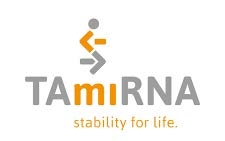AQrate assessment of Extracellular Vesicle-miRNAs
Profiling small non-coding microRNAs (miRNA) in biofluids is a practical and promising strategy for non-invasive diagnostics. Approximately 2100 different miRNAs are expressed in tissue-specific patterns that modify protein expression networks. MiRNAs are released into urine and blood in a mixture of soluble stabilizing carriers i.e. protein-complexes, lipoparticles, chylomicrons, exomeres, platelets and extracellular vesicles (EVs) including ‘exosomes’. Importantly, miRNA signatures in human serum can predict tissue damage and early stage cancer.
The mixture of cell-free miRNA carriers in biofluids is dynamic and not necessarily related to disease, negatively impacting the diagnostic accuracy of previously found miRNA signatures. EV-bound miRNAs are stably protected during sample collection, processing and storage. EVs also co-package specialized (glyco)proteins and may transfer a functional miRNA cargo to recipient cell/organs. Recent FDA approval and HMO coverage for an EV-mRNA prostate cancer detection test underscores their diagnostic potential. We discovered a panel of EV-miRNAs that predicts disease activity in patients with Lymphoma before, during and after treatment. Nevertheless, key challenges remain before EV-miRNA signatures can be translated into clinical practice.
We hypothesize that reducing technical and biological noise will unleash the promise of cell-free miRNAs as liquid biopsy strategy in clinical practice.
We have reduced technical noise during the plasma EV isolation procedure by removing residual platelets, lipoproteins and chylomicrons. A novel quantitative sequencing method was optimized for low input plasma EV samples leading to reduced technical and biological noise. Using this methodology we detected miRNA biomarker signatures for DLBCL and MM patients. Moreover, miRNA panels for healthy individuals and lung cancer patients were detected in urine.
More information Liquid Biopsy Center
More information EXOSOMES RESEARCH LAB






